Immigration to Canada through the Parents and Grandparents Program (PGP) has shown remarkable resilience, recording a 5% increase in March despite an overall decline in immigration numbers. This rise is significant in a period marked by an 11% decrease in the total number of new permanent residents arriving in Canada.
March Surge in PGP Immigration
The latest data from Immigration, Refugees, and Citizenship Canada (IRCC) highlights a notable increase in PGP immigration. In March, Canada welcomed 2,005 new permanent residents under this program, up from 1,910 in February and significantly higher than the 1,840 new arrivals in January. This upward trend suggests a steady recovery and growing interest in the PGP.
Quarterly Trends and Future Projections
Despite the positive month-over-month growth, the first quarter of the year shows a different picture when compared to the previous year. By the end of March, Canada had received 5,765 new permanent residents under the PGP, a 14.9% decrease from the same period last year. If the current rate continues, Canada could see 23,060 parents and grandparents gaining permanent residency by year-end, an 18.5% decrease from the 28,305 new arrivals last year.
Ontario continues to lead as the most popular destination for PGP immigrants. In the first quarter of this year, 2,855 parents and grandparents settled in Ontario. Other provinces also saw varying levels of PGP immigration:
- Nova Scotia: Experienced a 50% increase in March, a significant rise in percentage terms.
- New Brunswick: Saw a 66.7% decrease in the same period.
- Quebec: Welcomed 375 new permanent residents.
- Alberta: Had 1,085 new arrivals.
- British Columbia: Saw 985 new residents through the PGP.
Smaller provinces and territories had minimal to no new permanent residents under the PGP, indicating a concentrated pattern of immigration in more populous regions.
Understanding the PGP Program
The PGP allows Canadian citizens and permanent residents to sponsor their parents and grandparents for permanent residency. The process requires sponsors to submit two applications: a sponsorship application and a permanent residence application. The processing time for these applications is up to 27 months and includes providing biometrics.
Sponsors must meet several eligibility requirements, including:
- Receiving an Invitation to Apply (ITA).
- Being at least 18 years old and residing in Canada.
- Demonstrating sufficient income to support the sponsored relatives.
- Agreeing to financially support the parents or grandparents for 20 years (10 years in Quebec).
Financial and Legal Obligations
Sponsors must promise to support the sponsored family members financially, ensuring they do not rely on social assistance. This commitment includes providing for basic needs such as food, clothing, and healthcare not covered by public insurance. The agreement remains in effect even in cases of separation, divorce, or financial difficulties.
Keeping Applications Updated
Applicants must keep their information current to avoid delays in processing. Changes in relationship status, the birth or adoption of a child, or changes in contact information must be promptly updated. IRCC encourages applicants to update their details online rather than through mail to ensure timely processing.
Final Steps and Documentation
Once IRCC begins processing the application, they assess the eligibility of both the sponsor and the sponsored individuals. Necessary documents include medical exam results, police certificates, and biometrics. The biometric information must be provided within 30 days of receiving the request.
A Promising Outlook
Despite the overall decline in immigration numbers, the Parents and Grandparents Program remains a vital pathway for family reunification in Canada. The increase in PGP immigration in March signifies a positive trend that could contribute to Canada’s broader immigration targets. With the government’s commitment to welcoming 485,000 new permanent residents this year and growing targets for subsequent years, the PGP will likely continue to play a crucial role in Canada’s immigration landscape.
Conclusion
The Parents and Grandparents Program’s resilience amidst an overall immigration decline highlights the program’s significance in Canada’s immigration strategy. The emotional, social, and economic benefits of family reunification through the PGP cannot be overstated. As Canada aims to meet its ambitious immigration targets, the PGP will remain a cornerstone of the country’s efforts to balance economic needs with the invaluable support of family unity.
The rise in PGP applications demonstrates that family reunification remains a priority for many Canadians, and government policies continue to support this essential program. As the world navigates the complexities of global mobility, Canada’s commitment to the PGP is a testament to its dedication to family values and social cohesion.




